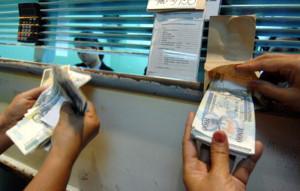Citing issues with regards rule of law, the US government’s Millennium Challenge Corp. (MCC) has deferred the approval of a second grant to the Philippines.
In a Dec. 14 statement, the Washington-based MCC said its board of directors had given the go-ahead to new five-year grants to Burkina Faso, Sri Lanka and Tunisia for programs and projects fostering economic growth as well as slashing poverty.
“For a country to be selected as eligible for MCC assistance, it must demonstrate a commitment to just and democratic governance, investments in its people, and economic freedom, as measured by third-party policy indicators on MCC’s annual scorecard,” it explained.
While the MCC board in December last year selected the Philippines to develop a second compact following the close of the first grant last May, they this time “deferred a vote on the reselection of the Philippines for compact development,” the statement read.
The MCC said the Philippines was “subject to a further review of concerns around rule of law and civil liberties.”
To recall, the first five-year compact worth $434-million granted in 2010 helped modernize the Bureau of Internal Revenue, expanded the Department of Social Welfare and Development’s Kapit-Bisig Laban sa Kahirapan-Comprehensive and Integrated Delivery of Social Services Project, as well as rehabilitated a major road network in Samar island.
But Socioeconomic Planning Secretary Ernesto M. Pernia said they were not worried about it.
Pernia told reporters that Finance Secretary Carlos G. Dominguez III called him up last Wednesday and told him that the US Agency for International Development (Usaid) wanted the MCC approval of the second compact put on hold.
But Pernia, who is also National Economic and Development Authority chief, pointed out that the second grant was expected to be smaller than the first one.
“It’s really more symbolic in terms of the confidence of those behind the MCC rather than that thing having real impact on the economy. It’s not going to be really like that in significance. And with the amounts of investments that many countries are interested in putting in [the Philippines], I wouldn’t lose sleep over that,” Pernia said.
The Neda chief cited for instance that when Asian Infrastructure Investment Bank (AIIB) President Liqun Jin visited Manila last Wednesday, the China-led lender expressed interest to fast-track lending to the Philippines.
“He was trying to sell AIIB assistance, trying to say that they’re going to be different from the World Bank and the Asian Development Bank in terms of speed of approval. He said that while the World Bank will take three years to process, they can do it in six months or less than a year. He was practically offering us on a silver platter the assistance they provided at AIIB,” according to Pernia. —Ben O. De Vera


